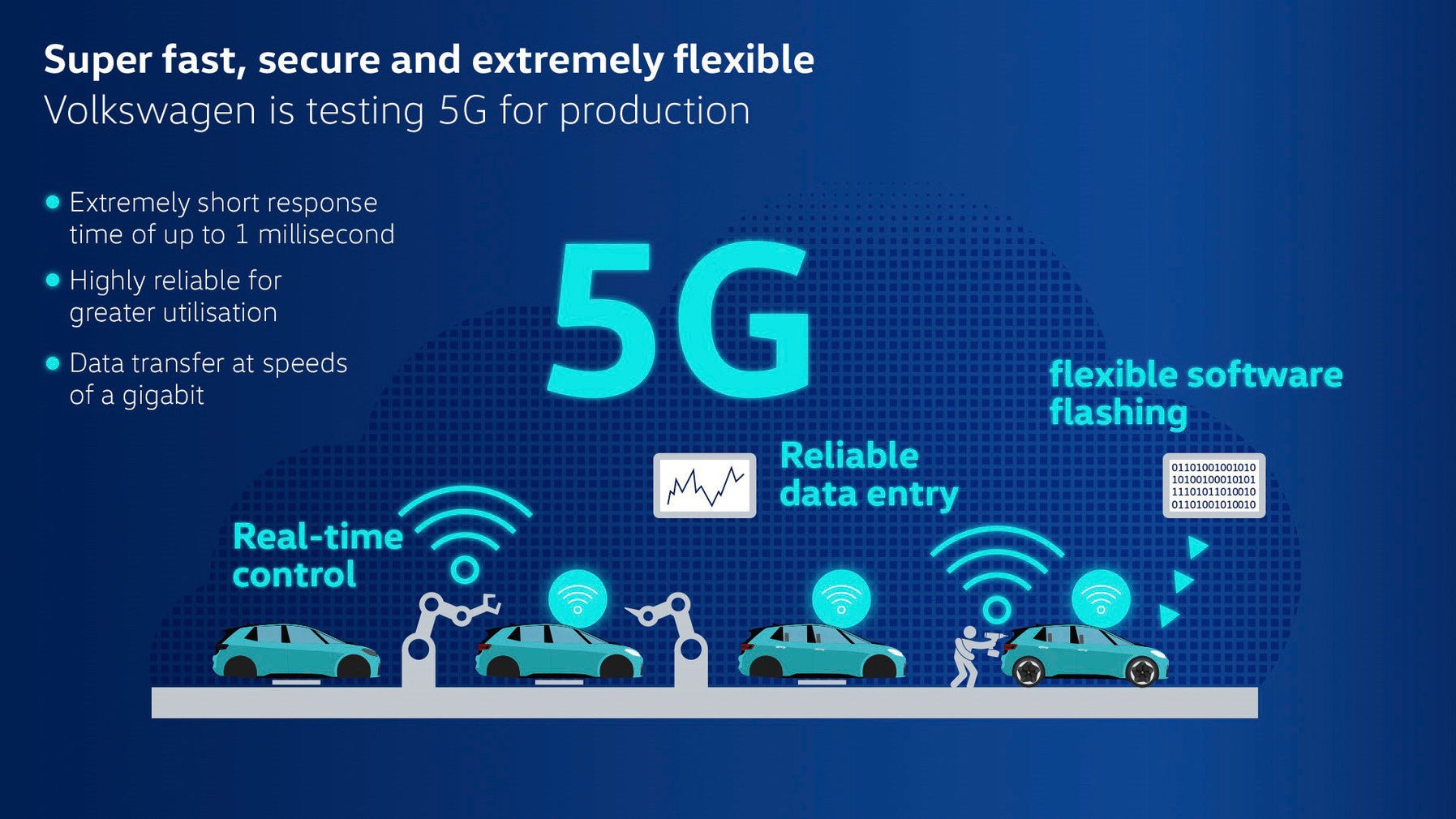
Volkswagen is moving towards fully networked factories with a local 5G standalone network now available at its main plant in Wolfsburg which initially covers the main production development centre and the pilot hall.
The pilot project will test whether 5G technology meets the demanding requirements of vehicle production with a view to developing this for industrial series production in the future.

Discover B2B Marketing That Performs
Combine business intelligence and editorial excellence to reach engaged professionals across 36 leading media platforms.
A dedicated 5G radio frequency will be used to safeguard secure, delay-free data transmission.
The so called Transparent Factory in Dresden has also put a ‘5G island’ into operation.
Volkswagen undertakes setup and operation of the 5G infrastructure itself in a move designed to build up competitive expertise in using this important technology of the future and ensure data security.
“In implementing our Accelerate strategy we are working at full speed to transform our sites into smart factories. Our goal is to continuously optimise our production and make it even more efficient and flexible. We believe that 5G technology has great potential for innovation, from the use of intelligent robots and driverless transportation systems to networked control of plant and machinery in real time up to wireless software flashing of manufactured vehicles,” said VW production and logistics chief Christian Vollmer.
There are already around 5,000 robots at Wolfsburg, as well as many other machines and systems. Secure, delay-free transmission of data will be required in the future to control and monitor these. Latency, the time it takes for data to be sent through the network, is significantly reduced with 5G networks versus other wireless communication technologies such as WLAN. 5G technology provides extremely short latency times of up to one millisecond, data transmission rates in the gigabit range and considerable reliability even with high use. This real-time wireless communication will make many smart factory applications possible for the first time.
One scenario to be tested in the pilot phase under real-life laboratory conditions in Wolfsburg is the wireless upload of data to manufactured vehicles. With ever higher levels of digitisation and fully connected vehicles, the production process requires large amounts of data to be transmitted to the cars. 5G makes it possible to perform this much more quickly and at any time during production.
“Efficient wireless communication in real time will be crucial for flexible production in the future. 5G has the potential to be one such driver of the industrial internet of things. Our aim is therefore to build up extensive experience in the operation and industrial use of 5G technology,” said Beate Hofer, group CIO. In the long term, the Wolfsburg campus network is expected to cover large parts of the 6.5 square kilometre site.
For Wolfsburg, the company was allocated a private radio frequency at 3.7 to 3.8 GHz with 100 MHz bandwidth by the Federal Network Agency. Exclusive spectrum is a key enabler as interference free, high availability wireless transmission requires a dedicated frequency that will be used exclusively for production purposes. The network equipment for the 5G pilot network is supplied by Nokia.
At Dresden, a pilot factory which is testing innovative technology in normal operation for the pilot-scale ID.3 series, networked control for a driverless transportation system is being developed further in collaboration with Porsche, Audi and the Dresden University of Technology.
The sensors in the driverless transportation system transmit the environment data to the cloud computer using 5G. This calculates the route to an ID.3 body and sends back the information in real time. The project is funded by the German federal ministry of education and research.






